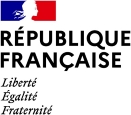Clarisse SEGUIN

Université de Reims Champagne-Ardenne
UFR Sciences Exactes et Naturelles
Campus Moulin de la Housse
Bâtiment 18
51100 Reims
The DiMer project aims to investigate mercury transfer through food consumption in freshwater ecosystem. Zebra mussels (Dreissena polymorpha) will be exposed to contaminated microalgae to assess bioaccumulation processes and associated molecular, cellular and behavioural responses. Study sites were selected along the Seine and Deûle rivers, which display gradients of mercury concentrations in both the water column and sediments, and host natural populations of D. polymorpha. The project will combine simplified laboratory exposures using natural phytoplankton communities with in situ caging experiments to determine i) the bioaccumulation and subcellular fate of mercury under environmentally realistic conditions and ii) the corresponding biological responses in D. polymorpha. By addressing the transfer and toxic effects of mercury between primary producers and filter-feeding bivalves, DiMer will fill a critical knowledge gap. Ultimately, the project will contribute to a better understanding of the bivalve exposome, supporting improved risk assessment of mercury and other contaminants within aquatic food webs and ecosystems.

